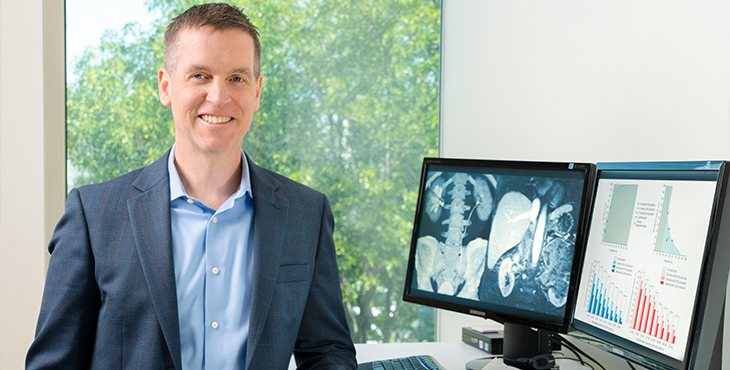Researchers from VA and the artificial intelligence company DeepMind, part of Google, have developed technology that has the potential to predict a life-threatening kidney condition up to two days before it happens.
The findings appeared July 31 in the journal Nature.
Using VA data, the researchers developed an artificial intelligence model to detect acute kidney injury in patients up to 48 hours before it would otherwise be identified.
Acute kidney injury can progress to kidney failure that requires dialysis. It can also affect other organs and cause death. But treatment is often effective if it’s started before the condition progresses. Certain diseases, some antibiotics, and crushing wounds are among the causes of AKI. It is common among older people and certain groups of hospital patients.
In the study, the model predicted 56% of all in-patient episodes of AKI and 90% of the most severe cases, where the patient later required dialysis. Dialysis acts as a replacement for kidneys when they fail. It filters out wastes, salt, and extra water from the blood without removing what the body needs.
Acute kidney injury is often hard to predict. Patients can deteriorate very quickly once it occurs. Foreseeing the condition up to two days in advance can help doctors start treatment to prevent kidney breakdown.
“The important number is predicting 90% of the most severe AKI cases early, so slowing progression and preventing dialysis or transplant is feasible,” says Dr. Christopher Nielson, VA’s principal investigator on the study and the VA director of predictive analytics. “To evaluate this, you would need to do a randomized trial, which is being planned. Also, the risks of using artificial intelligence to identify patients at risk of needing dialysis are very low. The values of preventing dialysis and transplant are very high. If you save one person from renal failure or death, it’s worthwhile.”
The study used data on more than 700,000 de-identified VA patients. Computers analyzed a vast number of clinical and demographic data points to see which factors best predicted AKI.
VA has “trained and evaluated on a clinically representative set of patients,” write the researchers. But they acknowledge that the predominantly male population in the dataset “is not representative of the global population.” Other studies would be needed to ensure the model can apply outside the VA system.
Personalized medical care
Researchers at the VA Palo Alto Health Care System are now planning a clinical trial to test the model. Dr. Thomas Osborne, the chief medical informatics officer at VA Palo Alto, will lead the effort.
“We are working on ways to optimally integrate this important technology into our electronic health record,” he says, “so it will act as an early warning system and empower our clinicians to act even faster.
The team, for example, is creating a tool to visually display AKI risk factors for clinicians.
Osborne adds that the same strategies can potentially be used to address many other common medical conditions.
“This project is yet another way VA is investing in first-class personalized medical care,” he says. “With support from our executive leadership, we’re on course to making a far-reaching impact on our Veterans, as well as the rest of society.”
Visit the VA research website to read about other VA studies on kidney disease.
Topics in this story
More Stories
Diverse representation of women in health care research allows MVP to make discoveries for women’s health
Join the Million Veteran Program online. You will have the option to receive an at-home blood sample collection kit in the mail.
VHA's new podcast series, New Horizons in Health, features a candid discussion of psychedelic assisted therapies for Veterans experiencing mental health conditions.






